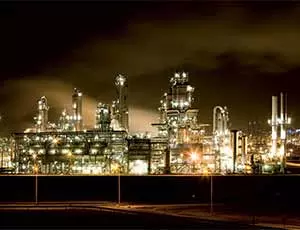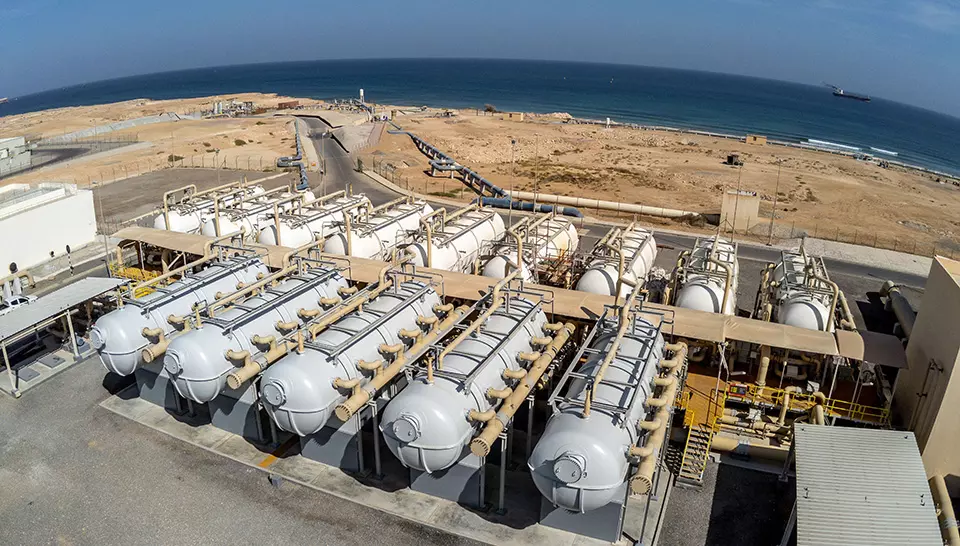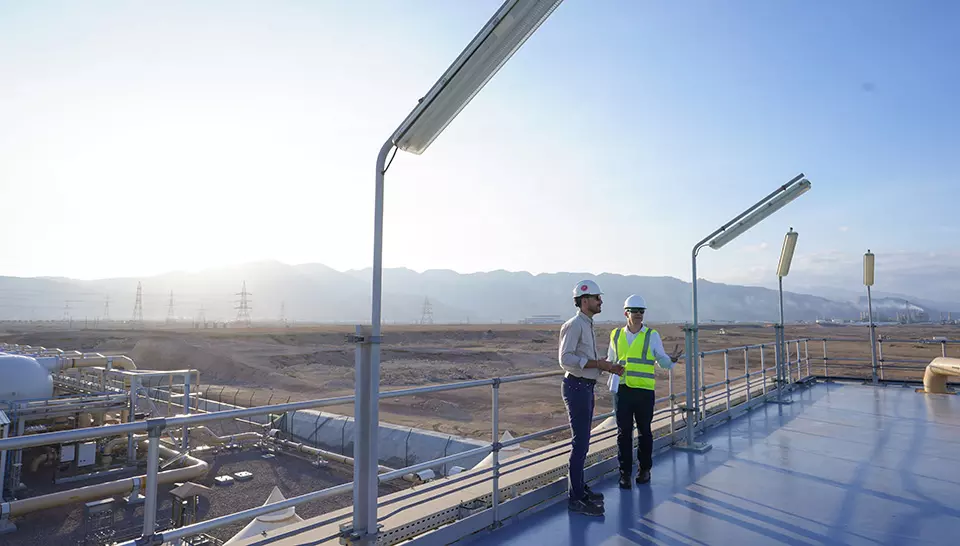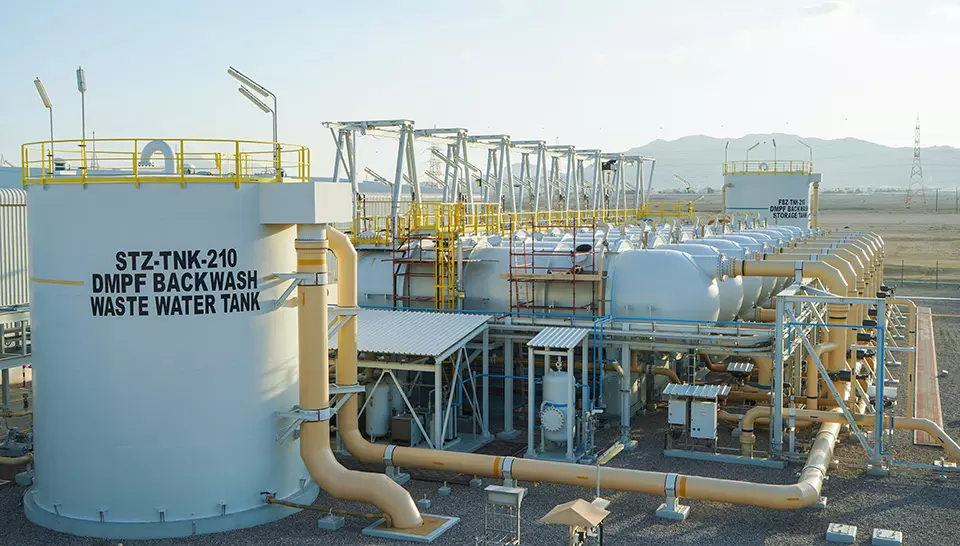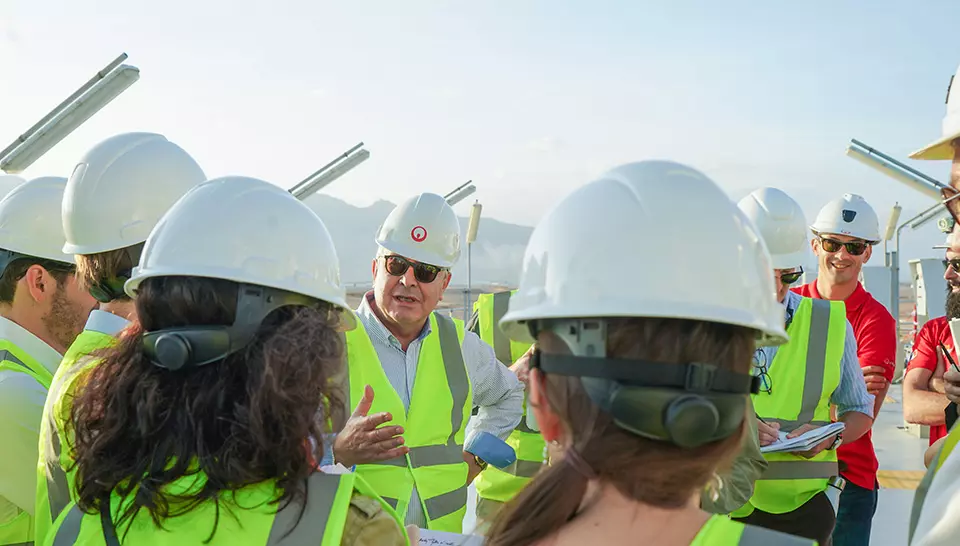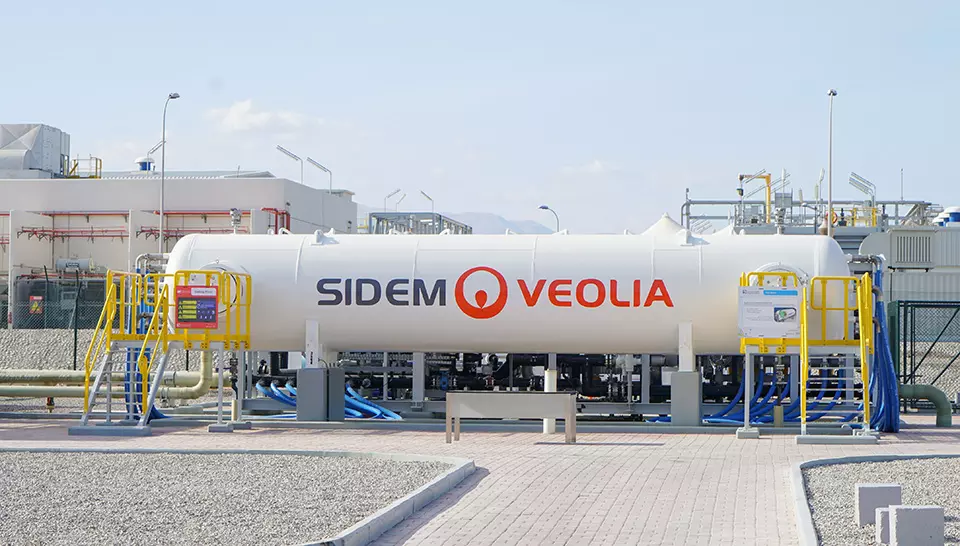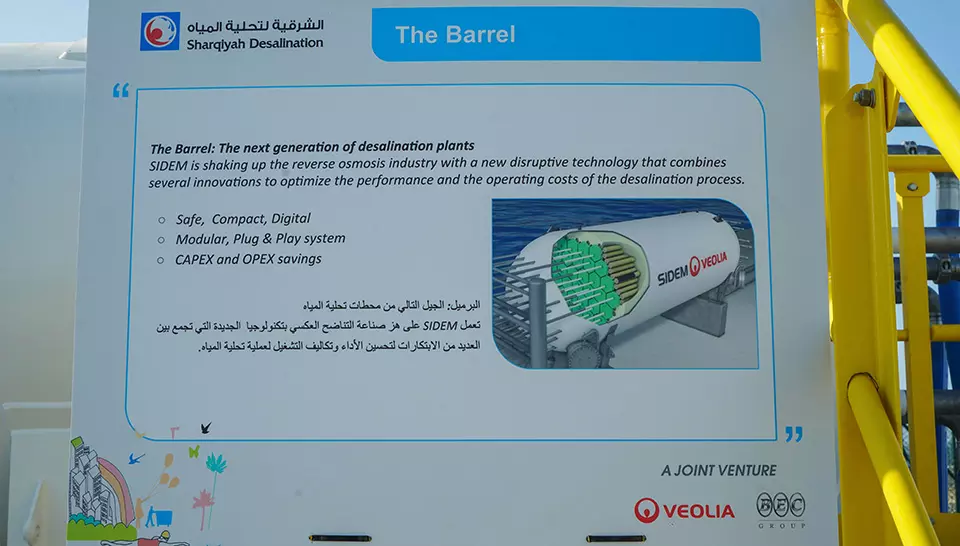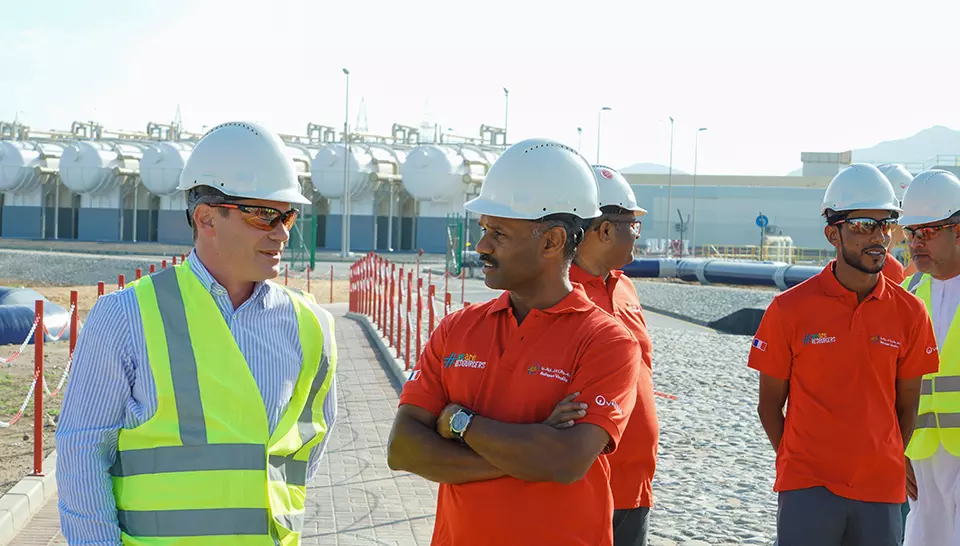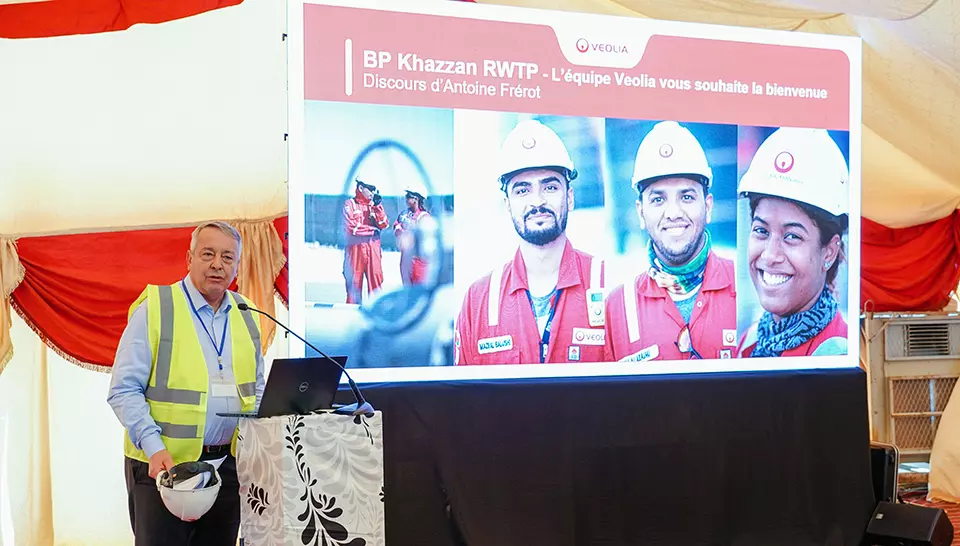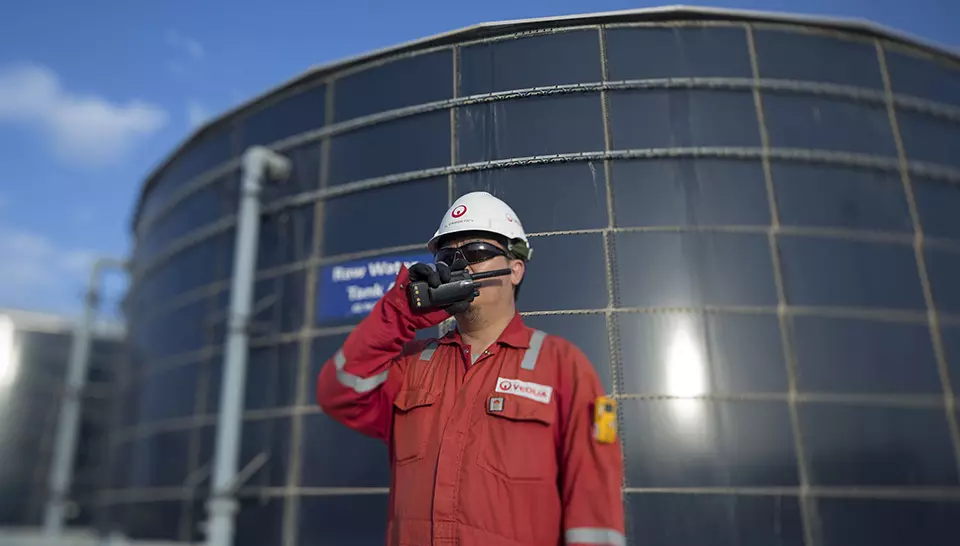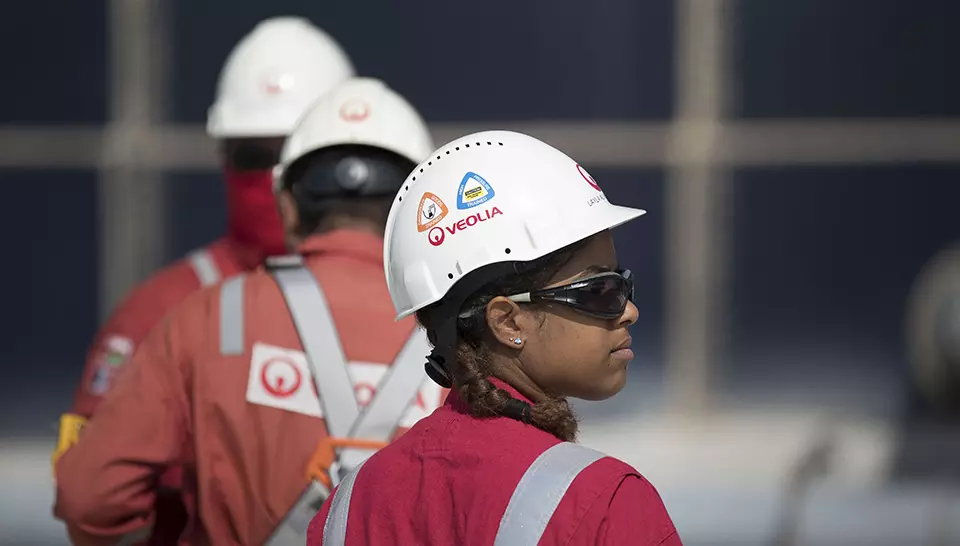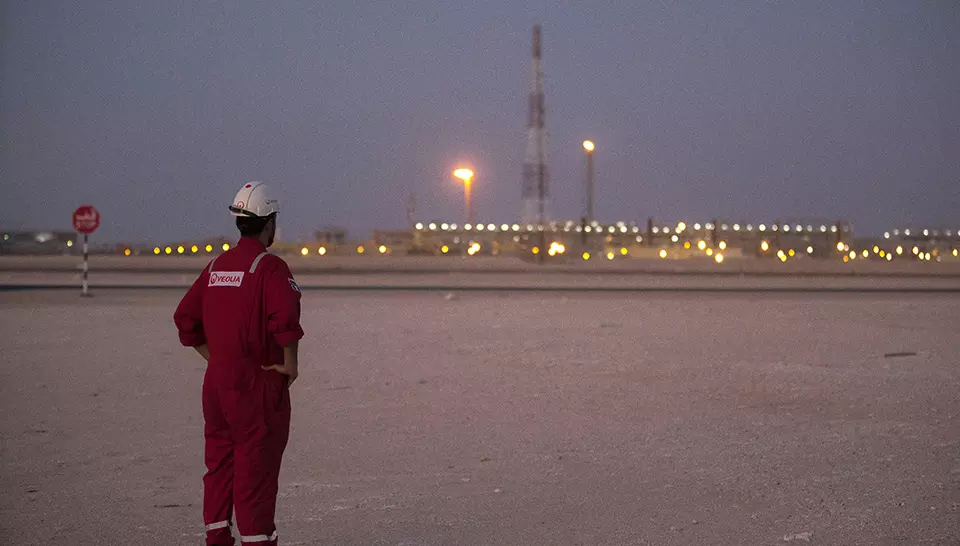In 2019, Veolia confirmed its long-term presence in the Middle East, where its businesses are growing in all segments (water, waste and energy). In particular, the Group has recently won a series of contracts in the very dynamic desalination market and has demonstrated its ability to adapt to the requirements of industrial customers in complex environments, as well as to the social and local specificities of the territories in which it operates. The highlight of this successful year was the implementation of “barrel”, in the Sultanate of Oman, a technological innovation that optimizes desalination performance.
Desalination: a key solution in overcoming resource scarcity in the Middle East
In a region facing the needs of a growing population, Veolia supports Middle Eastern countries in their economic development and ecological transition, combining its expertise to meet the challenges of water scarcity and of reducing pollution and greenhouse gas emissions.
Veolia's water desalination solutions are fully in line with these development and resource scarcity management issues in the Middle East. The region’s desalination market is currently growing by an average of 8% per year. In 2019, close to 50 projects will be launched worldwide, two thirds of them in the Persian Gulf, a region that represents 1% of the world's population and 6% of the world's water needs. A pioneer on the market, Veolia has built 17% of the world's desalination capacity there
Veolia won numerous desalination projects in the Middle East in 2019
In Bahrain, on the Al Dur site, an engineering and construction contract for a reverse osmosis desalination plant allowing the site to reach production of 227,300 m3/day of water; in Saudi Arabia, for the city of Rabigh, engineering and construction of the largest reverse osmosis plant in the Gulf countries with a capacity of 600,000 m3/day, and supplying drinking water to 2 million inhabitants; in partnership with Marafiq, the construction and operation of the wastewater treatment plant in the city of Jeddah (300,000 m3/day with an extension to 500,000 m3/day); in the United Arab Emirates, in Umm Al Quwain, the engineering and supply of a 682,000 m3/day desalination plant, in partnership with China Gezhouba Group Co. (CGGC); in the Sultanate of Oman, a build, maintain and operate contract for the Salalah desalination project to treat 95,000 m3 /day of water.
In Sur (Oman), disruptive technology optimizes reverse osmosis desalination
Designed and built by Veolia, the Sur plant, located in the east of the Sultanate of Oman, provides more than 130,000 m3 of drinking water per day, supplying more than 600,000 inhabitants across the entire Sharqyiah region. Water is extracted at a depth of 80 metres from 31 coastal wells that provide natural pre-filtration for 200,000 m3/day of water.
The plant recently became home to the "barrel" technology: a cylinder composed of membranes that optimizes water filtering performance and the operating costs of reverse osmosis processes. With a diameter of 2 metres and 10 metres long, the "barrel" produces 5,000 m3/day, and digitally monitors membrane performance. This innovation reduces the average cost of a desalination plant by 3% to 5%, saves 1.5% of energy and 25% of ground footprint compared to a desalination system housed in a building.
Since 2007, Veolia has operated the Sur plant in partnership with the national company Oman Procurement Water & Power (OPWP). It renewed its trust in Veolia in 2015 with the extension of the desalination plant contract.
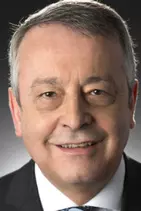
It is an innovative approach that goes hand in hand with environmental commitment: the Group's facilities in the Middle East are exemplary in terms of environmental performance, actively working to reduce the carbon footprint of its sites. In 2020, Veolia will inaugurate a 13 megawatt daily production capacity at the Sur solar power site that will cover all the plant's energy consumption during the day.
Veolia meets the "local" challenge in the Middle East: the Veolia team at the BP Khazzan site is 80% Omani
In the territories where it operates in the Middle East, and in particular on its industrial and desalination sites, Veolia has demonstrated its strong capacity to adapt to local regulatory changes - in particular linked to the development of policies for "local" jobs. In the Sultanate of Oman in particular, the Group quickly took up the challenge of increasing the proportion of Omani staff to reach 80% in Veolia teams on the BP Khazzan site over a period of only six months. Veolia's commitments in terms of Omani employees were also key to the renewal of the Group's contract with BP signed in March 2019 for a period of 5 years.
In the heart of the largest gas field in the Middle East located in the Omani desert, Veolia has been working with BP on the Khazzan gas site since it began production in 2015. Veolia has built a desalinated water treatment unit for BP, which it also operates and maintains. The plant's production capacity is 6,000 m3/day of treated water, with 2,000 m3 used for drinking water for living and office bases and 4,000 m3 for industrial water in the gas treatment unit.
"Here, the Veolia team is made up of more than 80% Omani technicians. The development of skills over time, staff training and the retention of local talent is a major challenge for us and our customer,” concluded Antoine Frérot.


